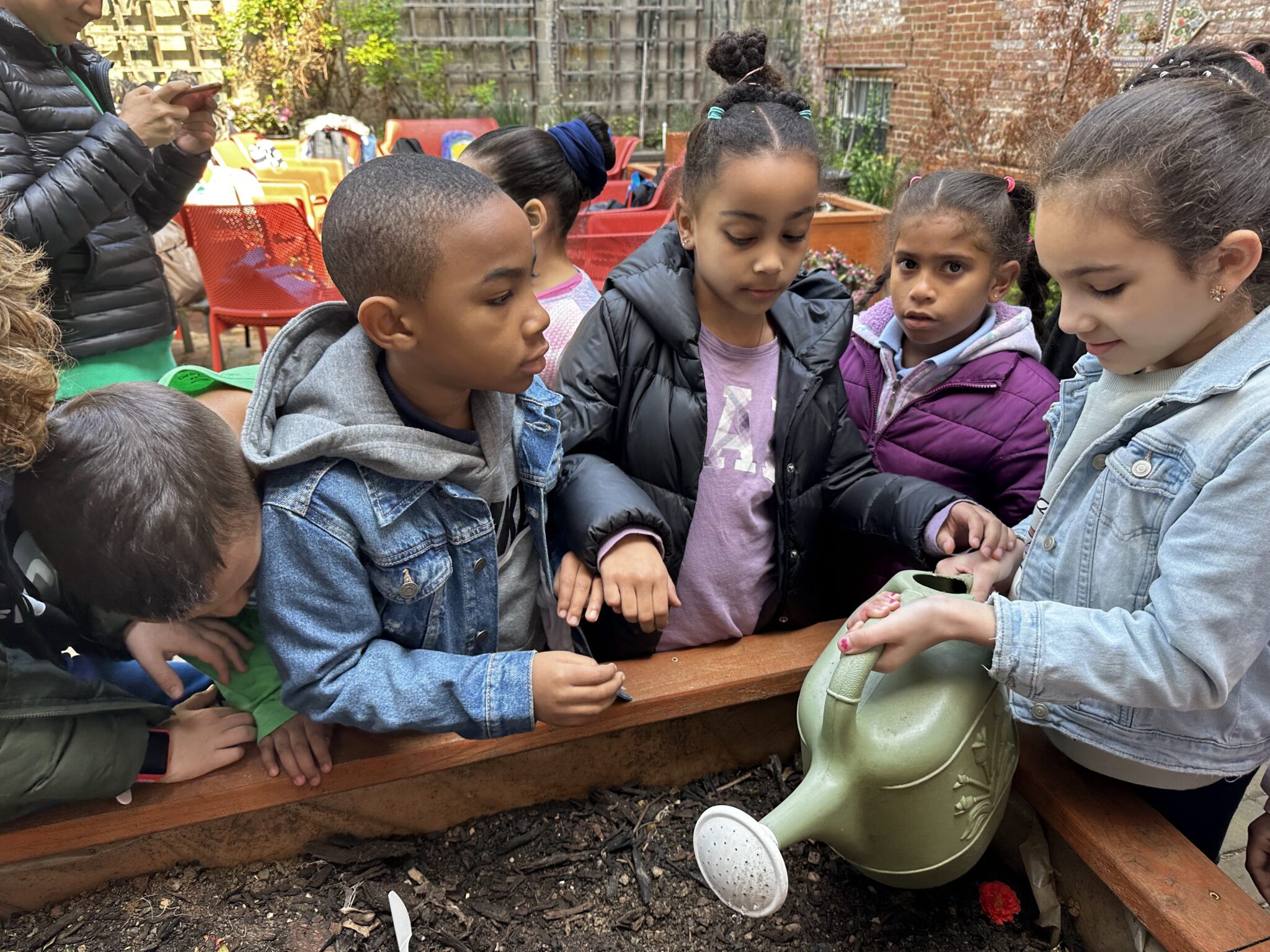
School group visits the Food Justice Garden to learn about where our food comes from.
Current Program Offerings
Where Does Our Food Come From? K-5th
In this workshop, students will explore food systems and how our food makes its way from the farm to our plates. They will see how food grows, taste what’s growing in the garden, and help tend to the garden.
Power to the People: Intro to Food Justice 3rd-8th
Students will learn about the importance of healthy food for our communities and how individuals can make positive change happen in their neighborhoods. We’ll do a garden tour and tasting and create native seed balls to take home.
Food and Waste 4th-8th
Students will learn about waste streams, compost, and how diverting food waste from landfills can support a healthy and sustainable nutrient cycle in the garden. Together we’ll explore current challenges related to food waste, explore the concept of decomposition, and identify how recycling and composting are beneficial. Students will create mini “landfills” in milk or juice cartons and investigate what happens to common household waste when buried under soil and plants.
Plants and People 4th-8th
Why are plants important to humans? This workshop will introduce students to the relationships that exist between people and plants. We will explore how humans have depended on plants for food, medicine, shelter, and more. Students will learn about plants that inspired the creation of modern day products and ongoing scientific “discoveries” that are rooted in indigenous wisdom. We’ll make herbal tea together using herbs from the garden and make connections between foraging traditions and food justice.
Power to the People: Intro to Food Justice 9th-12th
In this Intro to Food Justice workshop, students will learn about systemic issues of equity and access to healthy foods, including the history of redlining in New York City, and the role of food in individual, community, and environmental health. They’ll explore how the community garden movement empowered local communities to grow their own food and learn about local activists who led the movement. A garden tour and tasting will follow the session.